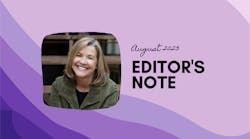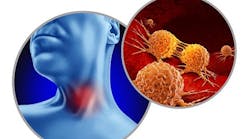I love a good quote, so much that they are posted throughout my office, on my dresser, in my day planner, and on my Facebook page. One of my favorites is from the Dalai Lama, “Be kind whenever possible. It is always possible.”
When I lived in Utah, I had the rare opportunity to hear the Dalai Lama speak, and this was one of many things he had to say that affected my life. Sometimes things inspire us in the moment, but we don’t fully realize the impact until years later.
Today as I watch social media, I am encouraged by many of the positive quotes people share, and I pause whenever I see negative comments directed toward others. Often this pause results in a quick click of the “unfollow” button. The negativity on social media is a reflection on the person posting, and the impact may not be fully realized until years later. You never know if you missed out on a great job opportunity because of how you represent yourself on social.
This month we recognize the positivity of the RDH Community Connection (RCC) program and thank Patterson for supporting this group of dental hygienists. Throughout the year, RDH has focused on each of these individuals and brought recognition to the influence they have on the dental hygiene community through their social media platforms.
Clinically, how do you represent yourself ethically when patients ask hard questions? This month, Kevin Lopez looks at dental hygiene and the ethical responsibilities we have when a patient advises they don’t want a comprehensive exam due to insurance reimbursement.
The COVID-19 pandemic has officially ended, but our global culture still feels the powerful aftershock. The consensus among clinicians in popular online forums is that patients are perceived to be more difficult to communicate with. Bethany Montoya takes a dive into the dilemma and shares her thoughts on intuitive patient care.
Shirley Gutkowski shares her insights on looking closer. There are some new anatomical terms that can help you communicate the true systemic consequences of oral conditions to patients and their primary practitioners.
As we strive to be respected ethical clinicians, we must also maintain the element of being nice. Take the time to be nice to yourself. Be sure to read this month’s continuing education course written by Renee Lipe and Stacey McKinney, “The impact of musculoskeletal disorders on the dental hygienist.”
In a world where you can be anything, be kind.






